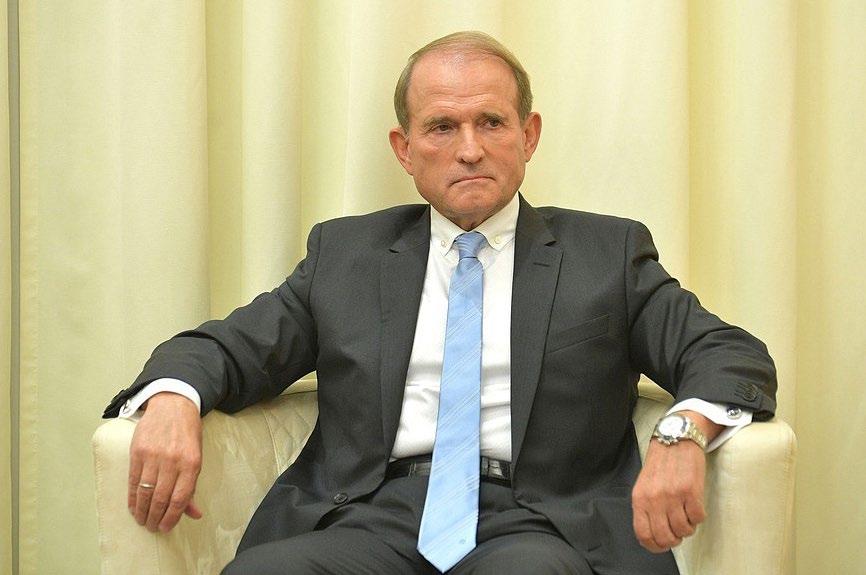
1 minute read
UKRAINE’S COURT FREEZES ASSETS UNDER NAME OF WIFE OF VIKTOR MEDVEDCHUK
A court in Ukraine has frozen more assets belonging to Oksana Marchenko, the wife of pro-Russian politician Viktor Medvedchuk, a move to deal another blow to pro-Russian politicians in Ukraine. Medvedchuk currently lives in Russia after a prisoner swap last year.
The Security Service of Ukraine (SBU) said that the assets, estimated to have a value of more than 1 billion hryvnyas (more than $27 million), are related to a 13.7 percent stake Marchenko owns in the Zaporizhzhya Ferroalloy Plant in the city of Zaporizhzhya that is the largest metallurgic facility in Europe.
Advertisement
SBU officials believe Marchenko had stakes through four offshore businesses. “The freezing of these assets will prevent their re-registration under other fake names and will allow them to be transferred for our state’s needs,” the SBU statement said. The SBU said in March that the assets, estimated at 440 million hryvnyas
($11.9 million), are related to a 6.8 percent stake Marchenko owns in the Dniprospetstal steelworks in the city of Zaporizhzhya. In February, Ukrainian courts froze and impounded assets and property in Ukraine held by Marchenko with an estimated value of 5.6 billion hryvnyas (more than $152.4 million). Marchenko is suspected of financing actions to forcibly disrupt Ukraine’s constitutional order, seize power, and change the state borders of Ukraine. Medvedchuk was the leader of the pro-Russia Opposition Platform-For Life political party that a court in Ukraine banned after the Russian invasion. He is a longtime Ukrainian political fixture and reportedly a godfather to Russian President Vladimir Putin’s daughter. He was arrested in 2021 on charges of treason and terrorism financing and later placed under house arrest on bail. Three days after Russia launched its invasion of Ukraine, Medvedchuk escaped house arrest but was rearrested in April while trying to flee to Russia. In September, Ukrainian authorities handed the politician over to Russia in a prisoner exchange. ■
28 April 2023










